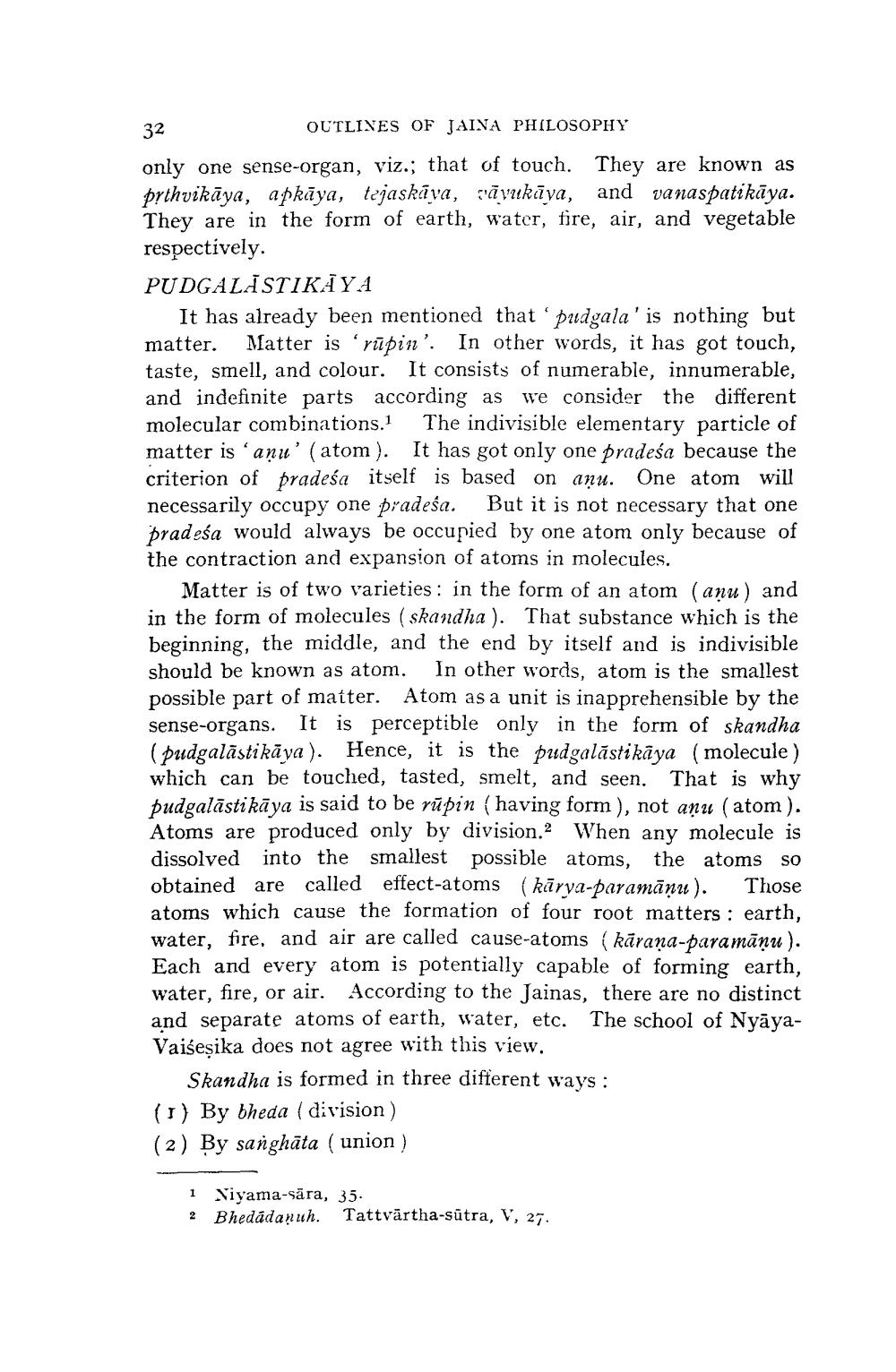________________
32
OUTLINES OF JAINA PHILOSOPHY only one sense-organ, viz.; that of touch. They are known as pythvikāya, apkāya, tejaskava, savukāya, and vanaspatikāya. They are in the form of earth, water, fire, air, and vegetable respectively. PUDGALÄSTIKÄYA
It has already been mentioned that 'pudgala' is nothing but matter. Matter is rūpin'. In other words, it has got touch, taste, smell, and colour. It consists of numerable, innumerable, and indefinite parts according as we consider the different molecular combinations. The indivisible elementary particle of matter is 'anu' (atom). It has got only one pradeśa because the criterion of pradeśa itself is based on anu. One atom will necessarily occupy one pradeśa. But it is not necessary that one pradeśa would always be occupied by one atom only because of the contraction and expansion of atoms in molecules.
Matter is of two varieties: in the form of an atom (anu ) and in the form of molecules (skandha). That substance which is the beginning, the middle, and the end by itself and is indivisible should be known as atom. In other words, atom is the smallest possible part of matter. Atom as a unit is inapprehensible by the sense-organs. It is perceptible only in the form of skandha (pudgalāsti kāya). Hence, it is the pudgalāstikāya (molecule ) which can be touched, tasted, smelt, and seen. That is why pudgalāsti kāya is said to be rūpin (having form ), not anu (atom). Atoms are produced only by division. When any molecule is dissolved into the smallest possible atoms, the atoms SO obtained are called effect-atoms (karya-paramānu). Those atoms which cause the formation of four root matters : earth, water, fire, and air are called cause-atoms (karana-paramānu ). Each and every atom is potentially capable of forming earth, water, fire, or air. According to the Jainas, there are no distinct and separate atoms of earth, water, etc. The school of NyāyaVaiseșika does not agree with this view.
Skandha is formed in three different ways: (1) By bheda ( division) (2) By sanghāta ( union )
1 Niyama-sära, 35. 2 Bhedādanuh. Tattvārtha-sütra, V, 27.




